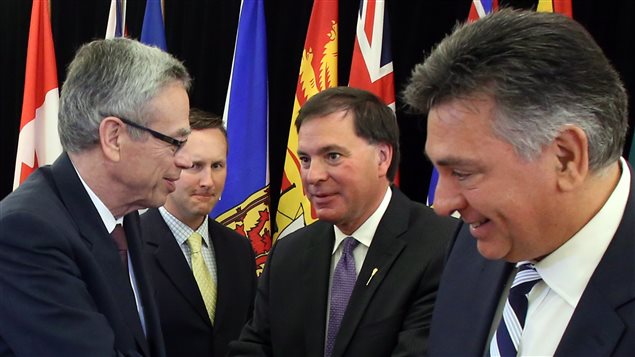The politicking over the federal government’s push to create a national securities regulator continues.
On Wednesday, Saskatchewan and New Brunswick signed on to an agreement-in-principle, joining Ontario and British Columbia in supporting the creation of a single watchdog to replace a province-by-province system.
Federal Finance Minister Joe Oliver called it a “landmark day.”
But shortly afterwards, Quebec and Alberta dismissed the idea. Both provinces say they prefer to run their own regulatory systems.
Quebec Intergovernmental Affairs Minister Jean-Marc Fournier said the federal scheme “doesn’t hold water from the point of view of economics, law or evidence.”
Alberta Finance Minister Doug Horner said capital market regulation is provincial jurisdiction, and that there won’t be a “critical mass” without Quebec and Alberta.
Alberta fears a central regulator would ultimately lead to a brain drain, centralizing power in Ontario.
Ontario, B.C., Saskatchewan and New Brunswick represent 53 per cent of market capitalization for publicly listed Canadian companies, and 75 per cent of the number of companies actually listed.
Quebec and Alberta represent most of the remainder–about 40 per cent, based on market capitalization.
Ottawa now appears set to move forward without them.
The regulator is expected to begin operations by the fall of 2015. Draft legislation is due by Aug. 29.







For reasons beyond our control, and for an undetermined period of time, our comment section is now closed. However, our social networks remain open to your contributions.